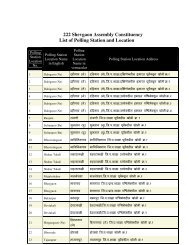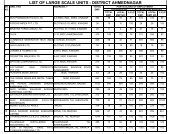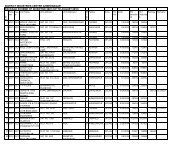1. INTRODUCTION
1. INTRODUCTION
1. INTRODUCTION
You also want an ePaper? Increase the reach of your titles
YUMPU automatically turns print PDFs into web optimized ePapers that Google loves.
· On the road, drive away from subways, flyovers and bridges. Stop in safe area. Stay in<br />
vehicle.<br />
2.3 After an Earthquake<br />
· Check for injuries. Provide first aid.<br />
· Check for water, sewage breaks and for downed electrical lines and short-circuits. Turn off<br />
appropriate utilities. Look for and extinguish small fires. Eliminate fire hazards.<br />
· Check for building damage and potential safety problems.<br />
· Clean up dangerous spills.<br />
· Turn on radio and listen for instructions from local authorities/police/fire brigade<br />
· Don't use the telephone except for emergencies.<br />
· Expect aftershocks. Each time you feel one, drop, cover, and hold on<br />
3 Floods and Flash Floods :<br />
[In addition to what has been listed under family preparedness as a generic response, floods<br />
demand specific preparedness and responses. Given below are the preparedness measures<br />
and responses which are specific to floods].<br />
Floods are the most common and widespread of all natural hazards. Some floods develop<br />
over a period of days, but flash floods can result in raging waters in just a few minutes.<br />
Flash floods carry rocks, mud and other debris and can occur without any visible sign of<br />
rainfall. Land slides are another danger created by flooding.<br />
3.1 Before a Flood<br />
· Find out if the area is flood-prone from the local authorities.<br />
· Understand the flood levels and learn about the history of flooding in the community.<br />
· Learn flood warning signs and community alert signals and know the terms used to<br />
describe flooding.<br />
3.2 During a Flood Watch<br />
· Listen to a battery-operated radio for the latest flood information. Fill buckets and other<br />
water containers with clean water in case water becomes contaminated.<br />
· Be aware of flash floods. Flash floods will rise faster and cut off the escape routes. If there<br />
is any possibility of a flash flood occurring, move immediately to higher ground. Do not<br />
wait for instructions to move.<br />
· Move valuable household possessions to the upper floors or to safe ground if time permits.<br />
3.3. During a Flood<br />
If Indoors:<br />
· Turn on battery-operated radio or television to get the latest emergency information.<br />
· Get your preassembled emergency supplies.<br />
· If told to leave, do so immediately.<br />
If Outdoors:<br />
C:\DOCUME~1\ADMINI~1\LOCALS~1\Temp\C.Lotus.Notes.DataRevised Grain Bank


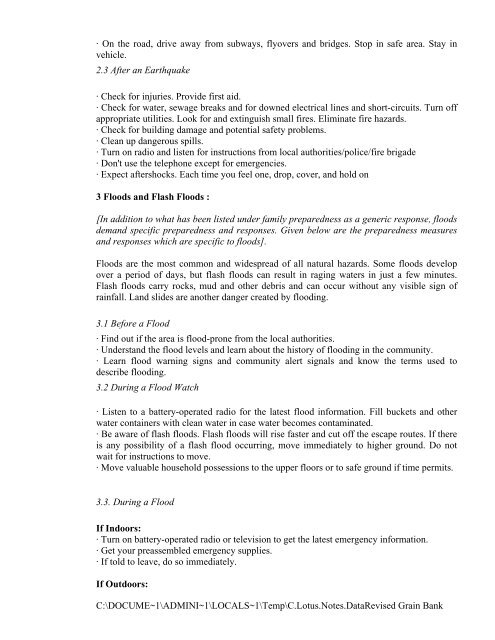
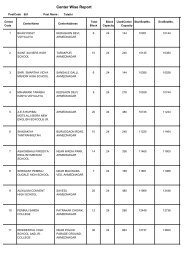
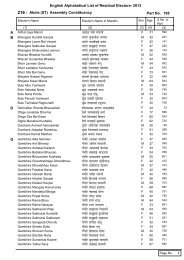
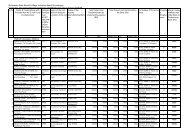
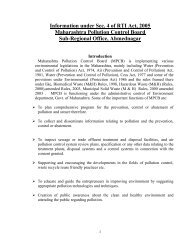
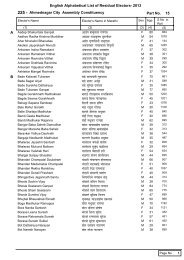
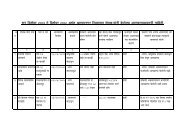
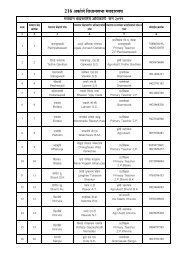
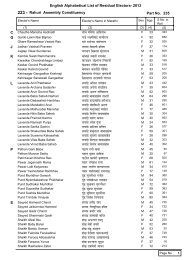
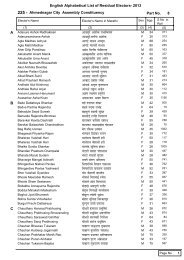
![216 - +ÃŪúÃä]äõ ĶÃŪúià ĶÃÃ>ðŪúÃÄ«Ã +ÃŪúÃä]äõ EÅÃÄÄ·ÃĪÃÃ](https://img.yumpu.com/36478022/1/184x260/216-aaaaaaau-aaaaia-aaaaaaaaa-aaaaaaau-eaaaaaaaa.jpg?quality=85)

